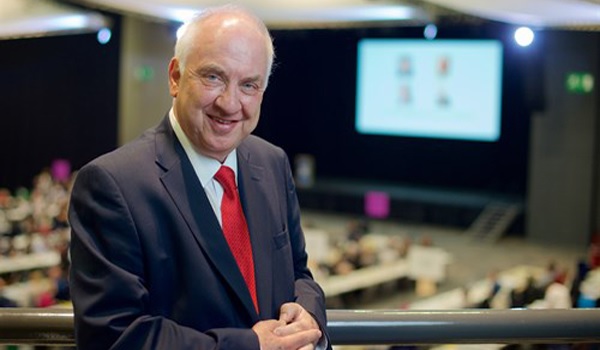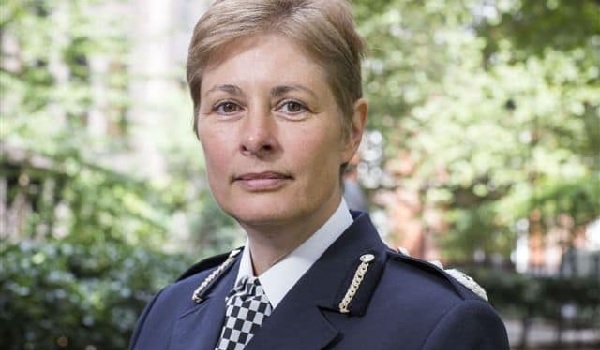PCC promises to put more pressure on Government to close legal loophole in war on lethal blades
A police and crime commissioner has called on the Government to “do much more” in the fight to ban lethal weapons on Britain’s streets after an acceptance that his law-changing work is not over.
The admission comes as West Midlands PCC David Jamieson backed a newspaper campaign calling on Home Secretary Sajid Javid to further review legislation into the sale of deadly knives.
Mr Jamieson, who successfully campaigned to outlaw zombie knives, told a West Midlands Strategic Policing and Crime Board that he was right behind an Express and Star investigation that had uncovered similar-style ‘weapons’ being legally sold in town and city centres for less than £14.
Shopkeepers are allowed to sell the knives – which have blades of up to 20 inches – by exploiting a loophole in the law.
Under current legislation knives must feature logos or words suggesting violence to appear on the Government’s ‘banned from sale’ list.
Critics argue that the Home Secretary’s new measures – as part of his Offensive Weapons Bill – are the right intentions but the wrong legislation.
Knives of any description ordered online will have to be collected from a non-residential address such as the web retailer’s shop, while all buyers will need to prove they are aged over 18.
But the campaign by the Wolverhampton newspaper – also backed by West Midlands Police (WMP) Chief Constable Dave Thompson, WMP Federation chair Richard Cooke and the city’s three MPs – for a change in the law on the sale of lethal blades is proving such steps are “completely meaningless” because of their easy availability.
A long-reach machete would still be legal, with the only difference between one and a ‘zombie knife’ being the absence of lettering and imagery.
“In the eyes of the law, it would not be the blade that was illegal, it would be the accompanying imagery,” the paper points out.
“Why would someone wishing to buy a weapon of this type go through the rigmarole of ordering it online and having it delivered to a shop, when they can visit a store in a town or city centre and simply buy one over the counter . . . after going through only cursory checks on their identification and address?
“Under the new legislation, there will still be no way of tracking what happens to the weapons once they have been taken through the shop door.
“A positive measure . . .but in reality just moving the deckchairs.”
Mr Jamieson told Police Professional: “I successfully campaigned for the ban on Zombie knives because it stopped people carrying a type of exceptionally dangerous weapon designed for only one purpose: harming others.
“Zombie knives were marketed and branded in such a way that they glamorised violence. That was unacceptable.
“Of course, the Government needs to do much more to take other dangerous weapons off our streets and I will continue to put pressure on them to do just that.”
A total of eight people have been stabbed to death in the West Midlands in the first six months of the year – with 20 murders over the 2017/18 period. There have also been dozens of shootings, non-fatal stabbings and gang related incidents.
Weapon possessions across the region have gone up by more than a third since the start of the year as the region’s woes are mirrored on a national level.
Meanwhile, emergency services are dealing with 30 stabbing and shooting incidents a week in the West Midlands as the region struggles with the upsurge in violent crime.
New official figures show that West Midlands Ambulance Service responded to 1,512 incidents where a victim was either knifed or shot in 2017/18 – up from 1,355 the previous year.
A total of 1,174 incidents were recorded in 2015/16, meaning paramedics now attend 29 per cent more attacks with these weapons than they did two years ago.
The figures also show the number of calls classed as ’emergency incidents’ – major incidents usually involving injury – has also risen sharply over the period, rising 11 per cent from 884,403 to 984,556.
Supporters of the campaign – which is backed by a petition containing more than 5,000 names – have argued that new powers to block the sale of knives should be brought in alongside more stringent sentences for people caught in possession of weapons.
The Government brought in a ‘two strikes’ rule in 2015, whereby anyone convicted of a second offence of knife possession faces a minimum prison sentence of six months.
However, according to the Ministry of Justice, four in ten repeat offenders are spared a prison sentence with courts having the option of using another legal ‘loophole’ to avoid jailing repeat offenders, if they can show it “would not be in the interests of justice”.
Sarah Jones, chairman of the All-Party Parliamentary group on Knife Crime, said: “If the Government is going to talk tough on knife crime with a two-strike policy, it should at least be making sure it is implemented.”







